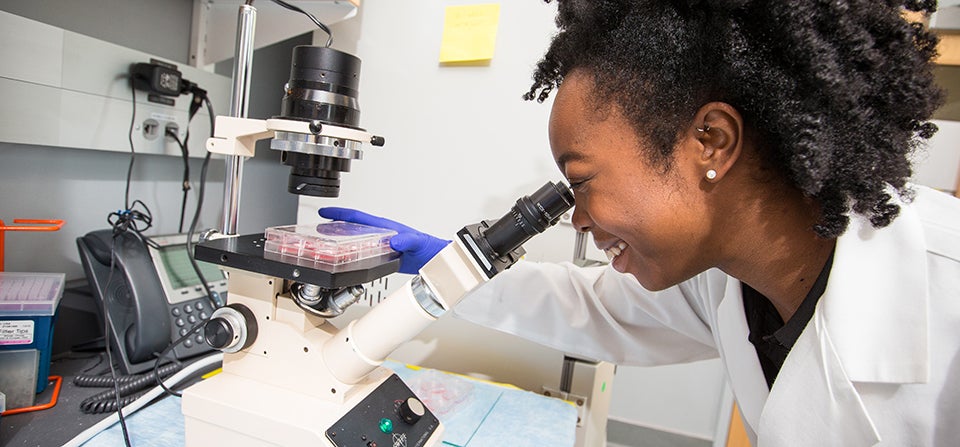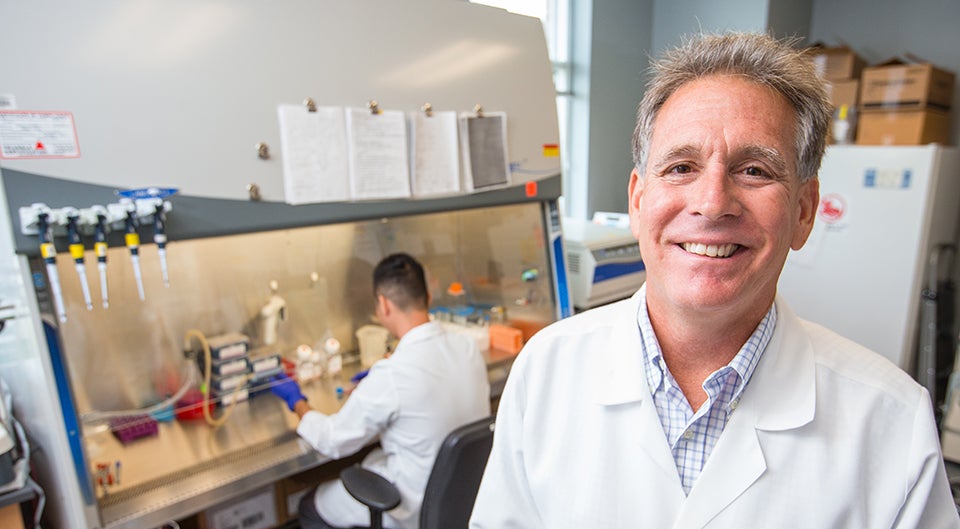ANALYZING EXERCISE
ECU part of groundbreaking, $170 million NIH-funded national study
East Carolina University researchers will help lead a groundbreaking national study to better understand the body’s response to exercise.
ECU will receive about $1.5 million over the next six years as part of a total $170 million in funding from the National Institutes of Health Common Fund. The grants were announced Dec. 13 as part of the NIH Molecular Transducers of Physical Activity in Humans Program.
The funding will support clinical research sites in analyzing how physical activity changes the chemical molecules within the body, which could lead to more targeted types of exercise.
ECU has teamed up with scientists at Duke University and Wake Forest University to form a joint clinical research site in North Carolina – one of seven across the country. It will be one of six sites that will focus on adults, while another will be dedicated to children, said Dr. Joseph Houmard, principal investigator of the ECU grant, director of the Human Performance Laboratory and the LeRoy T. Walker Distinguished Professor in kinesiology.

Dr. Joseph Houmard, ECU professor of kinesiology in the College of Health and Human Performance. (Contributed photo)
“We all know exercise is good for your health but we don’t know why,” Houmard said.
The ambitious study – which will target 3,000 people nationwide – will help develop a comprehensive map of the molecular changes that occur in response to exercise. Researchers not only want to investigate the mechanisms of exercise, but hope to figure out why some people respond better than others to physical activity, Houmard said.
The findings will allow for personalized medicine, prevention and treatment plans, and can better help those who are unable to exercise, he said.
The first year of the study will be spent on planning. An initial meeting of the national consortium will be held in January in Washington, D.C. to develop plans that include recruitment into clinical trials and identification of methods to analyze tissue samples.
ECU researchers expect to evaluate about 140 people in Greenville beginning in 2017, Houmard said. Findings from testing before, during and after exercise and muscle fat biopsies will contribute to the national study.
ECU’s multidisciplinary research team will include faculty members, graduate and undergraduate students in the Department of Kinesiology in the College of Health and Human Performance, the Brody School of Medicine and the East Carolina Diabetes and Obesity Institute.
Houmard looks forward to working with colleagues at Duke, Wake Forest and across the country. “It’s good on a national and state level,” said Houmard, who has been funded by the NIH since about 1992 to study exercise on a broad scale. “It’s a seminal study and it’s great for ECU to be a part of it.”
The Molecular Transducers of Physical Activity in Humans Program is managed by the National Institute of Arthritis and Musculoskeletal and Skin Diseases, National Institute of Diabetes and Digestive and Kidney Diseases, National Institute of Aging and National Institute of Biomedical Imaging and Bioengineering.
NIH is the primary federal agency conducting and supporting basic, clinical and translational medical research as well as investigating the causes, treatments and cures for common and rare diseases. It includes 27 institutes and centers and is a component of the U.S. Department of Health and Human Services. More information is at http://www.nih.gov and http://commonfund.nih.gov.

Kristen Turner works in Dr. Joseph Houmard’s lab at ECU’s College of Health and Human Performance.
